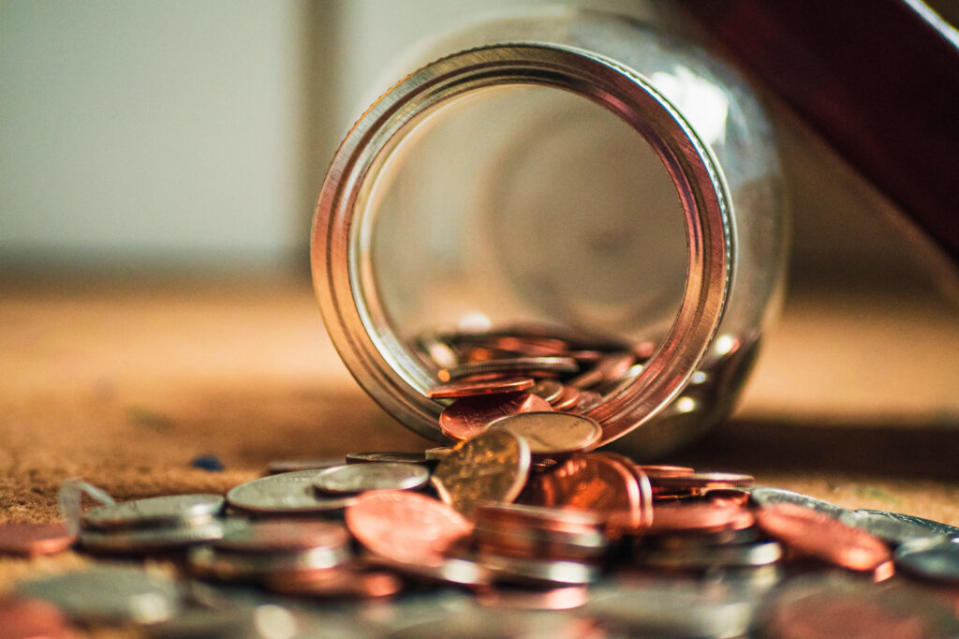4 Tell-tale Signs a Stock Will Grow its Dividends

Dividends are a big reason why income investors park their money in the stock market.
Many companies, including blue-chip and medium-sized ones, dole out dividends as a way to reward shareholders and share in the profits of the business.
REITs are also well-known for paying out regular distributions as they are mandated to distribute at least 90% of their net profit.
Although dividends may be attractive, it’s even better if they can rise over time.
With Singapore’s core inflation close to a 14-year high, dividend growth can help you outpace the higher cost of goods and services over time.
It also ensures that you slowly grow your passive income stream without injecting further capital.
Higher dividends are also one effective method you can use to compound your wealth – by reinvesting your dividends into the very same companies that are paying them out.
Admittedly, it can be tough to identify which stocks are about to raise their dividends.
Here are four methods you can use to determine if a company will give you more bang for your buck.
Higher free cash flow
Free cash flow is an important aspect of any company as cash represents the lifeblood of the business.
It is calculated as the operating cash flow minus the capital expenditure needed to sustain the business.
With improved levels of free cash flow, a business can have more options on how to deploy this cash.
Some of it could be used for expansion and increased staff strength, while the rest may be used for the payment of higher dividends or share buybacks.
There is evidence that higher dividends are usually announced in tandem with healthier free cash flow.
Take Sembcorp Industries Limited (SGX: U96), or SCI, for instance.
The utility group announced a free cash flow of S$394 million for its fiscal 2022’s first half (1H2022), 19.4% higher than the prior year’s S$330 million.
Its interim dividend has doubled from S$0.02 to S$0.04.
Raffles Medical Group (SGX: BSL), an integrated healthcare player, also saw its free cash flow surge by 46.8% year on year to S$107.3 million for FY2021.
The total dividend for the year was raised from S$0.025 to S$0.028.
Improved net profit
Aside from a jump in free cash flow, higher profits may also prompt a company to declare higher dividends.
As there may be a time lag before cash flows into the business, higher profits could be a sign that better times are ahead and that the company is on the right track to continue growing.
Management will also express confidence in the future by declaring higher dividends.
Keppel Corporation Limited (SGX: BN4) did just that.
The conglomerate reported a 66% year on year surge in net profit to S$498 million for 1H2022.
Its interim dividend jumped 25% year on year to S$0.15.
Singtel (SGX: Z74) also declared a higher interim dividend plus a special dividend to boot as it reported a higher underlying net profit for its 1H2023 earnings.
A track record of rising dividends
Another indication that a stock can continue paying higher dividends is to look at its track record.
REITs have a long history of distributions and you can review each REIT’s distribution per unit (DPU) record to see which has been consistently increasing its payouts.
Mapletree Logistics Trust (SGX: M44U) is one such REIT.
Its DPU has been rising consistently since fiscal 2016 (FY2016) ending 31 March.
For the first half of FY2023, DPU continued to climb, posting a 4.2% year on year increase to S$0.04516.
Healthcare REIT Parkway Life REIT (SGX: C2PU) is another example.
Its core DPU has risen without a pause since FY2008, going from S$0.0683 that year to S$0.1408 in FY2021.
For 1H2022, the REIT continued to grow its DPU by 1.5% year on year to S$0.0706.
Sustainable tailwinds and trends
Finally, a fourth tactic you can use is to look out for sustainable tailwinds or persistent trends that a company can tap into to grow its business further.
With tailwinds on its back, the company can slowly but steadily grow its bottom line and also boost its free cash flow, thus giving it the ability to raise its dividends in tandem with better performance.
iFAST Corporation Limited (SGX: AIY) is one such stock.
The fintech company raised its annual dividend from S$0.0301 in FY2017 to S$0.048 in FY2021.
For the third quarter of 2022, iFAST’s net profit plunged by 72% year on year due to a mix of lower revenue and higher expenses.
However, the group expects accelerated growth from 2Q2023 as contributions from its e-pension division kick in.
This tailwind should see iFAST reporting significantly higher profits and dividends may increase in line with these profits.
Not sure where to park your money in 2023? Give dividend stocks a try. You don’t need a lot of capital to start a stream of passive income. Our latest guide will show you how to invest and where to find the juicy dividends in SGX. Click here to download the report for FREE.
Follow us on Facebook and Telegram for the latest investing news and analyses!
Disclaimer: Royston Yang owns shares of iFAST Corporation Limited and Raffles Medical Group.
The post 4 Tell-tale Signs a Stock Will Grow its Dividends appeared first on The Smart Investor.

 Yahoo Finance
Yahoo Finance 